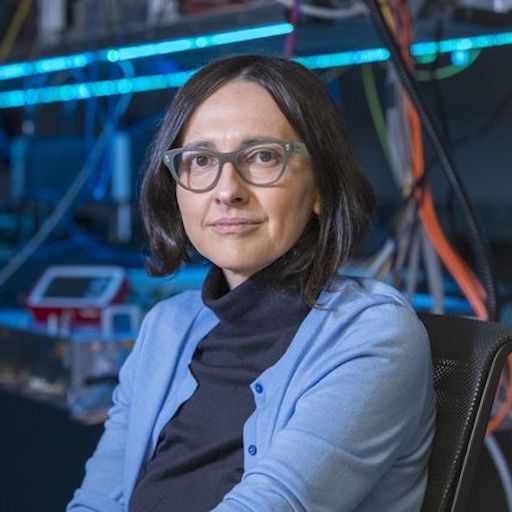
Jelena Vuckovic, a Jensen Huang Professor in Global Leadership and professor of electrical engineering at Stanford University
The grant will be used to develop an on-chip integrated pulsed laser, which the institution believes will help revolutionize photonic technology and applications that require these lasers, such as medicine, optical communications, quantum computing, and self-driving cars.
Vuckovic, who has received several awards for her research, including the MPQ Distinguished Scholarship from the Max Planck Institute for Quantum Optics in 2019, was chosen from high-caliber candidates around the world as a result of her research and proposal of miniature titanium:sapphire lasers. The price and size of traditional Ti:sapphire lasers is said to cause limitations in applications such as lidar and microscopy. The miniature version proposed by Vuckovic and her team would have a total volume less than a cubic centimeter.
“I am tremendously honored to receive the A F Harvey Prize from the IET and to be selected among the shortlisted group of very distinguished scientists,” Vuckovic said. “This prize will be used to support my lab’s work on implementation of miniaturized and inexpensive ultrafast lasers — the greatest challenge of integrated photonics.”
“Professor Jelena Vuckovic’s pioneering work on inverse photonic design is transforming our approach to the design and realization of new high-performance integrated systems with wide-ranging applications in communications, lidar, quantum systems, and the like,” said John O’Reilly, chair of the IET’s selection committee for the prize. “She and her team at Stanford have developed inverse methods that cut the design time dramatically, thereby opening new vistas and radically different approaches to realization of elements not previously conceived.”
Vuckovic will present a lecture on her research at IET London: Savoy Place on March 16, 2020.
The IET’s A F Harvey Research Prize is named after Arthur Frank Harvey, an engineer who donated a trust fund to the IET to be set up in his name for the furtherance of scientific research into the fields of radar, microwaves, lasers, optoelectronics, and medical engineering.
Vuckovic, who has received several awards for her research, including the MPQ Distinguished Scholarship from the Max Planck Institute for Quantum Optics in 2019, was chosen from high-caliber candidates around the world as a result of her research and proposal of miniature titanium:sapphire lasers. The price and size of traditional Ti:sapphire lasers is said to cause limitations in applications such as lidar and microscopy. The miniature version proposed by Vuckovic and her team would have a total volume less than a cubic centimeter.
“I am tremendously honored to receive the A F Harvey Prize from the IET and to be selected among the shortlisted group of very distinguished scientists,” Vuckovic said. “This prize will be used to support my lab’s work on implementation of miniaturized and inexpensive ultrafast lasers — the greatest challenge of integrated photonics.”
“Professor Jelena Vuckovic’s pioneering work on inverse photonic design is transforming our approach to the design and realization of new high-performance integrated systems with wide-ranging applications in communications, lidar, quantum systems, and the like,” said John O’Reilly, chair of the IET’s selection committee for the prize. “She and her team at Stanford have developed inverse methods that cut the design time dramatically, thereby opening new vistas and radically different approaches to realization of elements not previously conceived.”
Vuckovic will present a lecture on her research at IET London: Savoy Place on March 16, 2020.
The IET’s A F Harvey Research Prize is named after Arthur Frank Harvey, an engineer who donated a trust fund to the IET to be set up in his name for the furtherance of scientific research into the fields of radar, microwaves, lasers, optoelectronics, and medical engineering.




 IonQ Achieves Industry Leading Performance on Next Generation Barium Qubits
IonQ Achieves Industry Leading Performance on Next Generation Barium Qubits